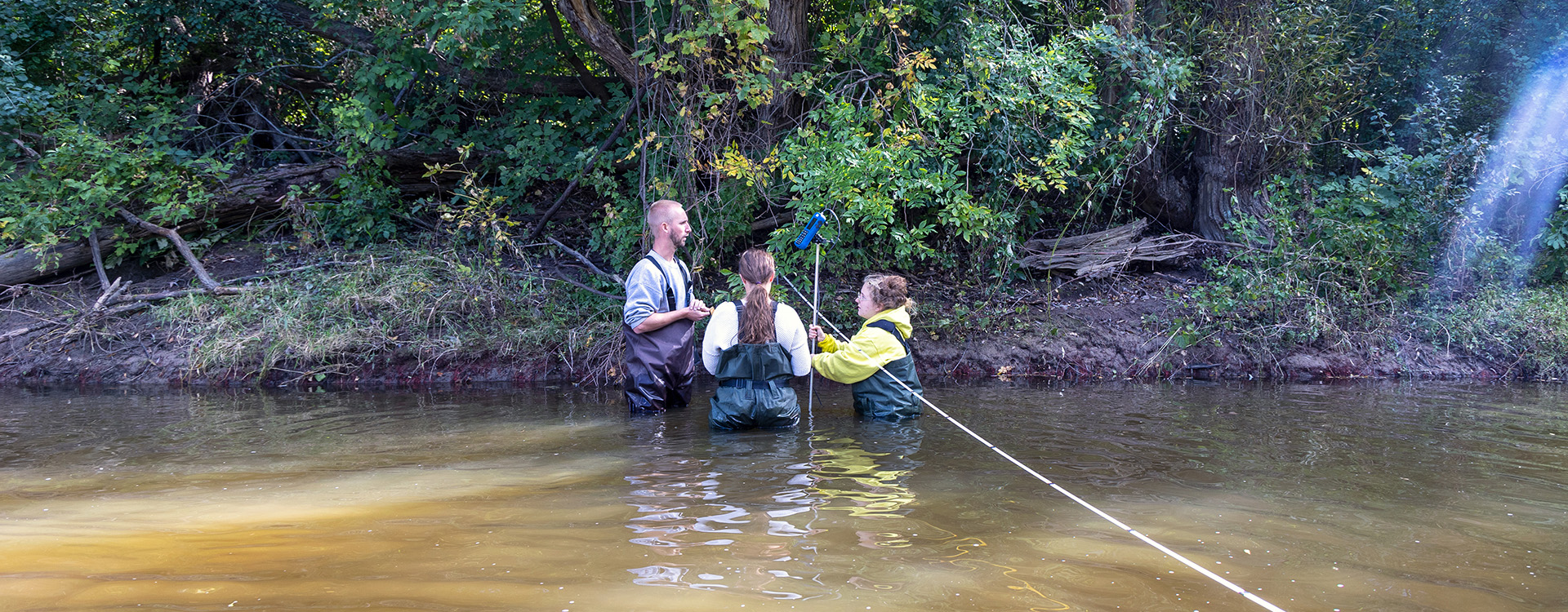Embrace your role as a steward of our planet and explore the complexities of God’s creation as a student in our environmental science major. You’ll study a variety of scientific perspectives on environmental issues with a focus on the ways biology, chemistry, and earth science intersect.
You’ll explore the relationship humans have with the environment and each other from a Christian perspective. Working one-on-one with your professors, you’ll actively engage in studies involving:
- Soil and water quality
- Waste recycling
- Air quality sensors
- Other relevant topics
You may also play a role in shaping our campus’s approach to environmental stewardship by assisting faculty with our rain garden, composting, organic waste management, and other initiatives.
The number of faculty-guided undergraduate research projects is always growing. Environmental science majors can participate in a number of well-funded projects in aquatic ecology in both local and tropical watersheds, or conduct research in the field investigating the differences between native plants and invasive species in remediating wastewater. Students also may assist in research seeking to reduce phosphorus concentrations in effluent from constructed wetlands.
Our small class sizes mean that our faculty are invested in every student’s success. You will develop close, personal relationships with your classmates and faculty. They want you to succeed academically as well as grow spiritually in a safe, nurturing environment.
When you earn your environmental science degree from WLC, you’ll graduate ready to step into a career in botany, conservation, ecology, or other field devoted to caring for God’s intricately designed creation.

